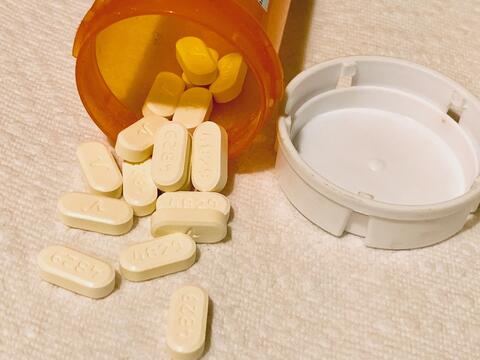Whether enjoying the day in a local park or driving far from home, be sure you’re not driving while impaired.
With the recent legalization of marijuana/cannabis sales in New Jersey, the NJ Poison Control Center reminds drivers that legal medicines and substances can make driving unsafe.
“Many everyday products and substances cause serious side effects, making drivers feel different when behind the wheel,” Diane Calello, executive and medical director of the New Jersey Poison Control Center, said.
“It doesn’t matter if a product is sold legally or illegally, driving while impaired is illegal in New Jersey and across the country,” Calello said.
“It’s widely known that alcohol use affects a person’s ability to drive, however, alcohol is not the only legal substance known to result in dangerous driving.”
Typically, when people hear the phrase “driving under the influence,” they think of alcohol and drunk driving.
However, many products greatly increase the risk of driving under the influence — prescription drugs, nonprescription (over-the-counter) medicines, recreational drugs, illegal/street drugs, and medicinal and recreational THC/marijuana.
“All medicines and substances cause health effects which may range from minor to severe,” Calello said.
Some products may cause extreme sleepiness, loss of focus or attention, decreased coordination, blurred vision, and slow reaction times, making driving unsafe.
Examples of common prescription drugs and nonprescription medicines that can result in impaired driving — are anti-seizure medicines, sleeping aids, muscle relaxants, anti-diarrhea medicines, anxiety drugs, antidepressants, pain medicines, allergy products, antipsychotic medicines, cough and cold products, diet pills, and motion sickness medicines.
“Pay attention to the warning label on the products you’re taking. If a product has a side effect that makes driving unsafe, there’s a “do not operate heavy machinery” warning on the product,” Calello said.
To be clear, your personal vehicle is most certainly considered heavy machinery.
If a drug, medicine, or substance makes you feel different, you can bet it will make you drive differently. Stay off the roads if you’re feeling impaired.
Many lives, including your own, depend on it.
Follow these safety tips to lower your risk of injury when taking prescription drugs and over-the-counter medicines, including vitamins and supplements.
- Select medicines that treat ONLY the symptoms you have. For example, if you are congested and do not have other symptoms, use a decongestant product only. If you are congested and have a cough, use a decongestant product that also stops coughing.
- Limit or avoid using alcohol when taking medicine. Many ingredients used in medicine can interact dangerously with alcohol causing effects such as nausea, vomiting, drowsiness, fainting, and loss of coordination.
- Be knowledgeable about active ingredients in medicines, possible side effects, and potential interactions. Before using, read the product’s label for warnings, directions and ingredient list. Dangerous interactions can still happen even if the products were taken at different times.
- More does not mean better. Do not take medicines longer or in higher doses than the directions recommend. If symptoms continue, it is time to see a doctor.
- Liquid medicines should be accurately measured with a measuring spoon, dosing cup, or oral syringe. When giving medicine to young children, the amount of medicine given should be based on weight and not age. It is unsafe to use a kitchen spoon to measure medicine.
- Do not drive until you know how a prescription drug or over-the-counter medicine affects your driving. Many products warn about the potential for impaired driving.
- Ask your pharmacist, healthcare provider, or the medical staff at the NJ Poison Control Center (1-800-222-1222) for help in choosing medicines that will not interact with the medicines you are already taking. Drug-to-drug interactions can be extremely dangerous and even cause death.
If you think someone came in contact with something dangerous, contact your local poison control center immediately for medical treatment advice.
Anyone can call for medical help – children, teens and adults. Poison control centers are a medical resource for both the public and healthcare providers. Get help 24/7.
If the person is awake, call the NJ Poison Control Center at 1-800-222-1222.
If someone is not breathing, is hard to wake up, or having a seizure, call 9-1-1.
